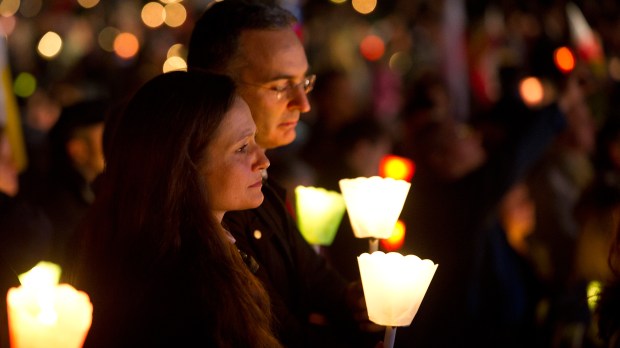“Let’s go on a pilgrimage!”
Do those words fill you with delight or dread?
The tradition of travelling to one of the great sites of Christian pilgrimage (Jerusalem, Rome, Lourdes or Fatima, for example) can easily stir up exciting images and religious sentiments. Think of it! Having the courage to leave behind everything and everyone familiar. The generosity to interrupt one’s ordinary life. The humility to accept inconvenience, hunger — perhaps even danger! Wouldn’t it be wonderful to be a person of such virtue? And who could resist if the prospect of a pilgrimage made such promises?
Then there would be the rewards of returning home, having completed an odyssey that less hardy souls could only dream of. You’d receive a hero’s welcome. People would be eager to hear your tales of perilous adventure, endured hardship and religious ecstasy. While people clamored to hear your comments on the photos you took along the way (your posts on Facebook just couldn’t do them justice!), the more discerning among your friends would notice that you were different.
Something about you has changed. They note the occasional faraway look you get — as if you were still seeing something that now is very distant yet very present. They might notice that you now speak more knowingly about deep and important things. Behind your back, people whisper words like “wise” and “holy,” and you do your best not to notice.
Merely considering a pilgrimage, while enjoying all the comforts of home, could easily prompt such flights of fancy. But such thoughts are simply that — mere fancy. A wise man once observed, “Nothing so encourages false hopes as the first six hours of a diet.” That same wise man might also say that nothing causes such pious piffle as musing about the glories and graces of a pilgrimage.
Please do not misunderstand me. There certainly are glories and graces to be found on pilgrimage. But a real pilgrimage (as opposed to an imagined one, or a religiously themed vacation masquerading as a pilgrimage, which may be worse) always involves costs and risks. By costs, I mean more than inconvenience and expense. By risks, I mean more than the possibilities of disappointment, injury or even death — these are possible whenever one travels for any distance or purpose.
The costs and risks I have in mind extend beyond these. The costs include letting go of the familiar while on pilgrimage and doing so in the hopes that the familiar will be diminished in importance by an encounter with the divine on the road and at the holy site.
The risks of a real pilgrimage include the desired possibility that you will become unable to forget that all of human life is a pilgrimage — that we are all always and already dying as we pass through time toward eternity. A true pilgrimage will keep us from the illusions that this life is our true home and that we can forestall indefinitely the judgment of God. In other words, a pilgrimage, fully and truly, is a preparation for losing this life, and, for better or worse, entering eternal life.
In his autobiography, St. Ignatius Loyola referred to himself only as “the Pilgrim.” His desire at his conversion was to travel to the Holy Land. He reached his destination but wasn’t permitted to stay as long as he had wished. He resolved to return. After his ordination, his wish was to make the pilgrimage to Jerusalem again, but war made the trip impossible.
St. Ignatius was a rare kind of pilgrim for two reasons. First, when he set out on his pilgrimage, he relinquished all hold on his former life. He surrendered his identity, ambitions and possessions. He left nothing to come back to and went forward as a man not expecting to come back. How different from most pilgrims, who expect and desire to return to the familiar and the cherished at the end of their journey.
The other reason that St. Ignatius differed from most pilgrims is that even though he lived the last 15 years of his life in one city, he still referred to himself as “the Pilgrim.” What can we glean from these two facts, and how can they illuminate our lives?
We can learn from St. Ignatius that human persons by definition are wayfarers, people on the way from birth to death to eternal life. To be human is to be passing through this world, and we will take nothing and no one with us when we go. Above all, the example of St. Ignatius teaches us that a faithful disciple of Christ is the true pilgrim, for the faithful disciple agrees to answer the Lord’s call to leave behind the world and follow him to our Father’s house, which is our only true home.
When I write next, I will speak of finding your first and last name of grace. Until then, let’s keep each other in prayer.
Father Robert McTeigue, SJ, is a member of the Maryland Province of the Society of Jesus. A professor of philosophy and theology, he has long experience in spiritual direction, retreat ministry and religious formation. He teaches philosophy at Ave Maria University in Ave Maria, FL, and is known for his classes in both rhetoric and medical ethics.

